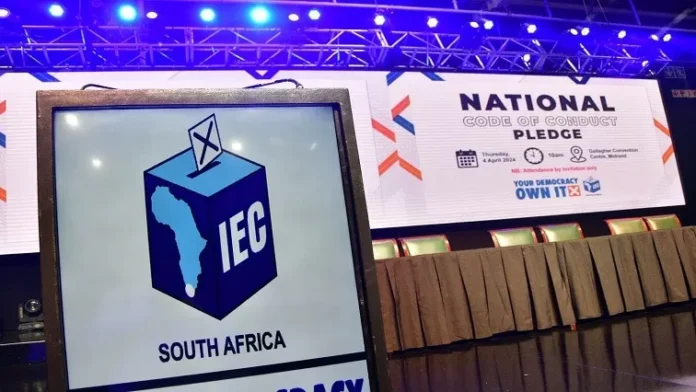The Independent Electoral Commission (IEC) has taken a significant step towards promoting transparency and efficiency in the South African political landscape. The Commission has announced that it will be issuing a notice to de-register the South African Communist Party (SACP) and 91 other inactive political parties.
The decision to de-register these political parties is in line with the IEC’s mandate to ensure that only viable and legitimate political parties participate in the electoral process. The Commission’s Chief Electoral Officer, Mr Sy Mamabolo, stated that the de-registration process is necessary to remove any political parties that have failed to comply with the requirements set by the Electoral Act.
The move comes after an extensive review of the political party landscape in South Africa by the IEC. It was found that these 92 political parties have either not contested in any election or have failed to submit their financial statements, which is a mandatory requirement for all registered political parties.
The SACP, which has been in existence since 1953 and is one of the oldest political parties in South Africa, has not contested in any elections since 1999. This is a clear indication that the party is no longer actively involved in the political arena. The IEC’s decision to de-register the SACP should not come as a surprise, as the party itself has not shown any interest in participating in elections.
The 91 other political parties that are set to be de-registered have also failed to meet the criteria set by the IEC. These parties have either not submitted their financial statements for the past five years or have not contested in any elections during that period. This demonstrates that these political parties are not actively participating in the democratic process.
The IEC’s decision is a welcome move and should be applauded by all South Africans. It shows that the Commission is committed to upholding the integrity of the electoral process and ensuring that only legitimate and viable political parties are part of it. The de-registration of these inactive political parties will not only streamline the political landscape but also make it more efficient.
In addition, this decision will also save the taxpayers’ money as the IEC will no longer have to allocate resources to these inactive political parties. This money can now be channeled towards other important areas such as voter education and upgrading voting infrastructure.
Furthermore, the de-registration process will also pave the way for new and emerging political parties to register and participate in the electoral process. This will promote diversity and competition within the political sphere, which is essential for a vibrant democracy.
It is also worth noting that the IEC has given these 92 political parties an opportunity to respond to the notice and provide valid reasons as to why they should not be de-registered. This shows that the Commission is committed to fairness and due process in its decision-making. However, it is highly unlikely that any of these political parties will be able to provide sufficient reasons to justify their continued registration.
The IEC’s notice to de-register the SACP and 91 other inactive political parties is a clear message to all political parties that the Commission will not tolerate any disregard for the electoral laws and regulations. It is essential for all political parties to comply with the requirements set by the IEC to maintain their legitimacy and active participation in the democratic process.
In conclusion, the IEC’s decision is a step in the right direction towards promoting a transparent and efficient political landscape in South Africa. It shows the Commission’s commitment to upholding the integrity of the electoral process and ensuring that only legitimate and viable political parties are part of it. We should all welcome this move and continue to support the IEC in its efforts to strengthen our democracy.

